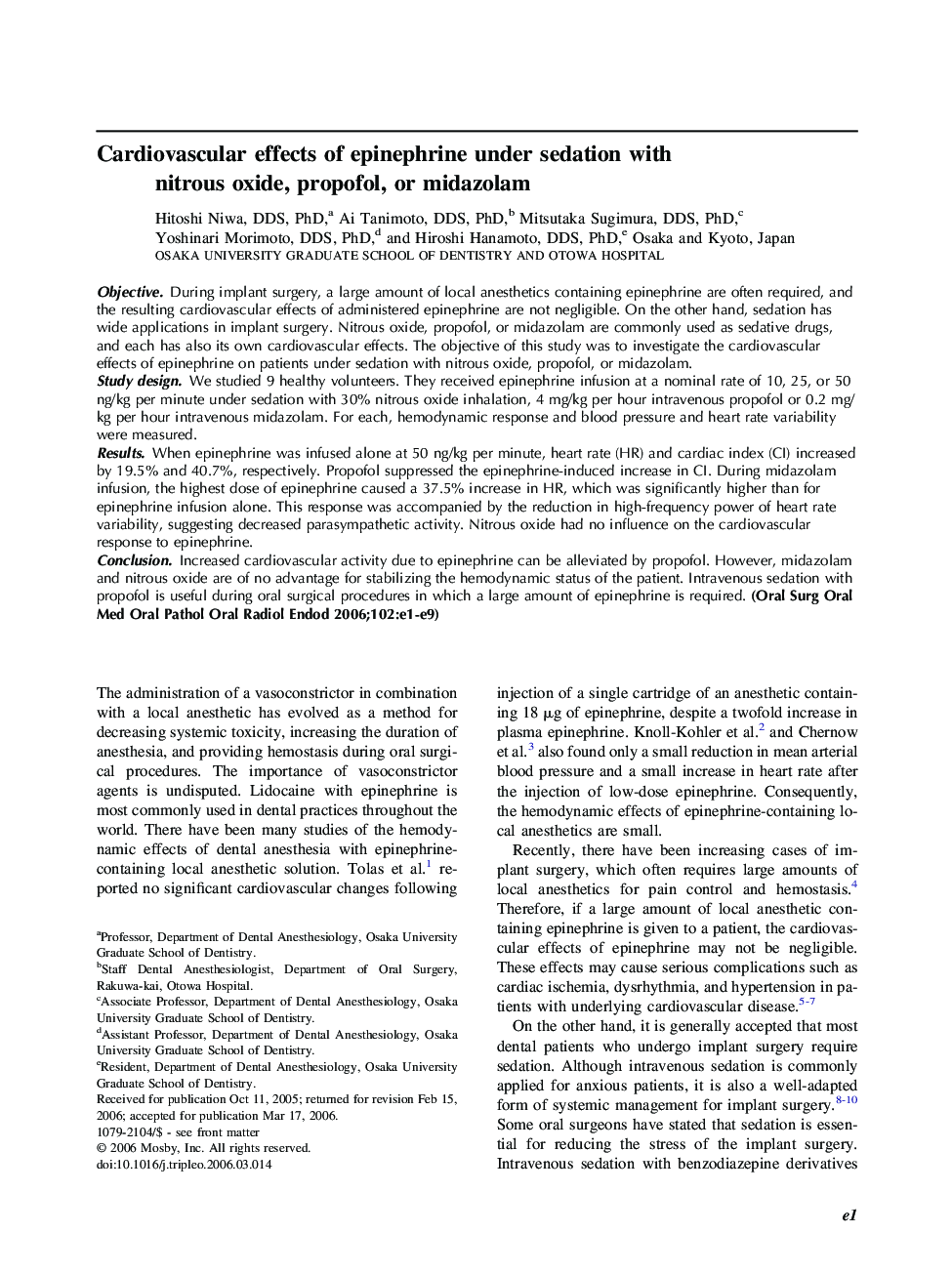| کد مقاله | کد نشریه | سال انتشار | مقاله انگلیسی | نسخه تمام متن |
|---|---|---|---|---|
| 3169703 | 1586357 | 2006 | 9 صفحه PDF | دانلود رایگان |

ObjectiveDuring implant surgery, a large amount of local anesthetics containing epinephrine are often required, and the resulting cardiovascular effects of administered epinephrine are not negligible. On the other hand, sedation has wide applications in implant surgery. Nitrous oxide, propofol, or midazolam are commonly used as sedative drugs, and each has also its own cardiovascular effects. The objective of this study was to investigate the cardiovascular effects of epinephrine on patients under sedation with nitrous oxide, propofol, or midazolam.Study designWe studied 9 healthy volunteers. They received epinephrine infusion at a nominal rate of 10, 25, or 50 ng/kg per minute under sedation with 30% nitrous oxide inhalation, 4 mg/kg per hour intravenous propofol or 0.2 mg/kg per hour intravenous midazolam. For each, hemodynamic response and blood pressure and heart rate variability were measured.ResultsWhen epinephrine was infused alone at 50 ng/kg per minute, heart rate (HR) and cardiac index (CI) increased by 19.5% and 40.7%, respectively. Propofol suppressed the epinephrine-induced increase in CI. During midazolam infusion, the highest dose of epinephrine caused a 37.5% increase in HR, which was significantly higher than for epinephrine infusion alone. This response was accompanied by the reduction in high-frequency power of heart rate variability, suggesting decreased parasympathetic activity. Nitrous oxide had no influence on the cardiovascular response to epinephrine.ConclusionIncreased cardiovascular activity due to epinephrine can be alleviated by propofol. However, midazolam and nitrous oxide are of no advantage for stabilizing the hemodynamic status of the patient. Intravenous sedation with propofol is useful during oral surgical procedures in which a large amount of epinephrine is required.
Journal: Oral Surgery, Oral Medicine, Oral Pathology, Oral Radiology, and Endodontology - Volume 102, Issue 6, December 2006, Pages e1–e9